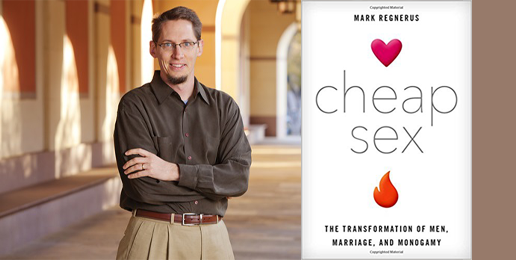
Sociologist Mark Regnerus has a new in-depth study of how our culture’s lack of sexual morality is impacting relationships in ways not seen in previous generations. There was a fascinating, if not disturbing, review of Regnerus’ new book (Cheap Sex) that contained the following section specifically looking at how the culture is impacting Christians. It also mentions how churches are impacted by these changes and the confusion it is causing.
The review states the following:
Long-standing Christian sexual ethics are making less and less sense to the un-churched — a key market for evangelicals. That’s giving church leadership fits over just how “orthodox” they can be or should be on matters of sex and sexuality. “Meeting people where they’re at” becomes challenging. Congregations are coming face to face with questions of just how central sexual ethics are to their religious life and message.
Levels of uncertainty — that is, neither agreeing nor disagreeing — about various sexual practices and attitudes are elevated among Christians. When we asked more than 15,000 Americans about sexual ethics, many who attended religious services at least once a week were on the fence. How many?
- 23 percent are unsure about the wisdom of cohabiting before marriage
- 14 percent are unsure about marriage being outdated
- 21 percent don’t know what they think about no-strings-attached sex
- 25 percent don’t know if viewing pornography is okay or not
- 10 percent are unsure about whether extramarital sex might ever be permissible
- 17 percent don’t know if consensual polyamorous unions are okay
One can interpret those on the fence as movable — open to being convinced. But if trends in sexual norms hold, most who once claimed neutrality eventually drift toward the more permissive position.
Cheap sex, it seems, has a way of deadening religious impulses. It’s able to poke holes in the “sacred canopy” over the erotic instinct, to borrow the late Peter Berger’s term. Perhaps the increasing lack of religious affiliation among young adults is partly a consequence of widening trends in non-marital sexual behavior among young Americans, in the wake of the expansion of pornography and other tech-enhanced sexual behaviors.
Cohabitation has prompted plenty of soul searching over the purpose, definition and hallmarks of marriage. But we haven’t reflected enough on how cohabitation erodes religious belief.
We overestimate how effectively scientific arguments secularize people. It’s not science that’s secularizing Americans — it’s sex.
This article was originally published by AFA of Indiana.































